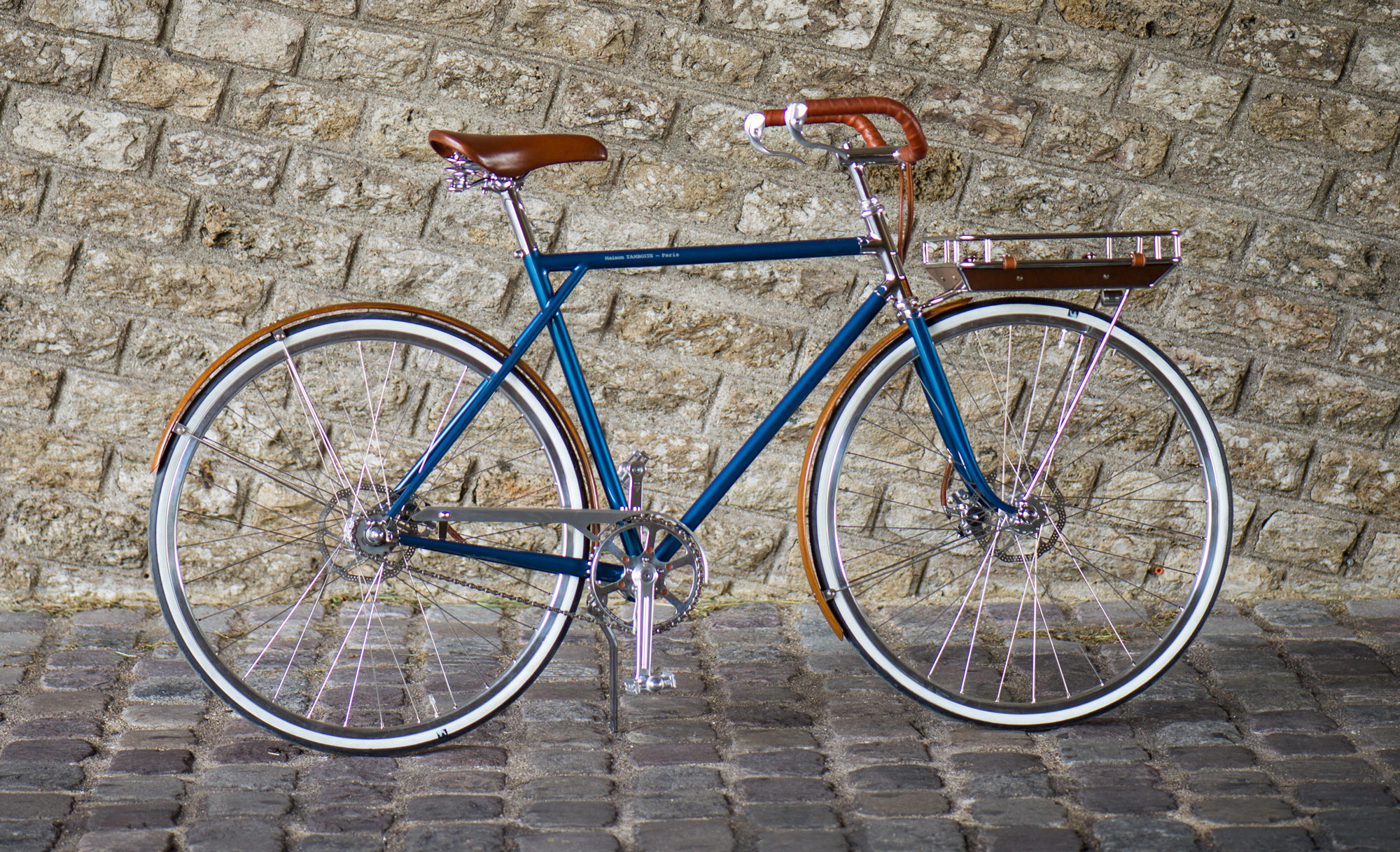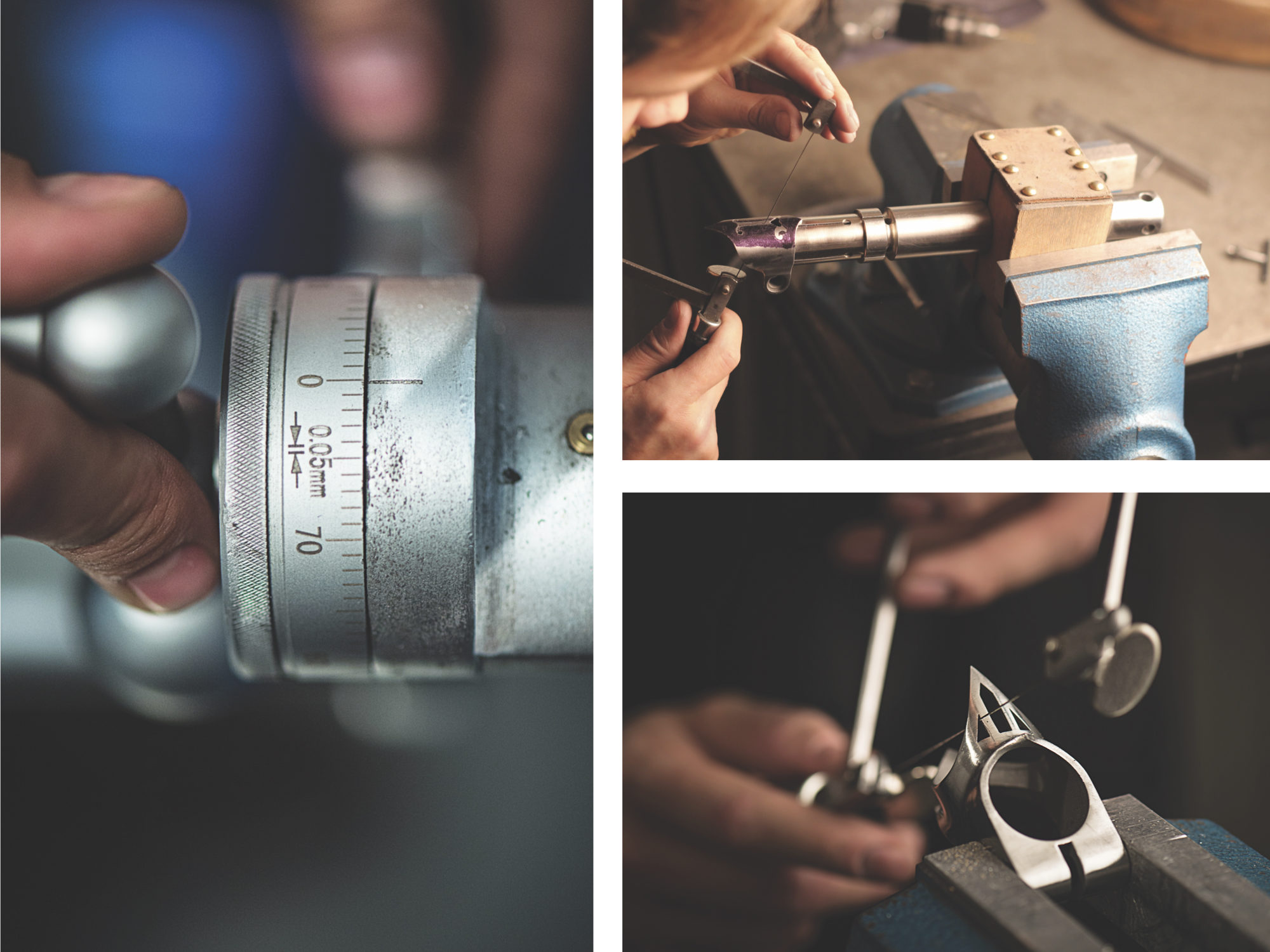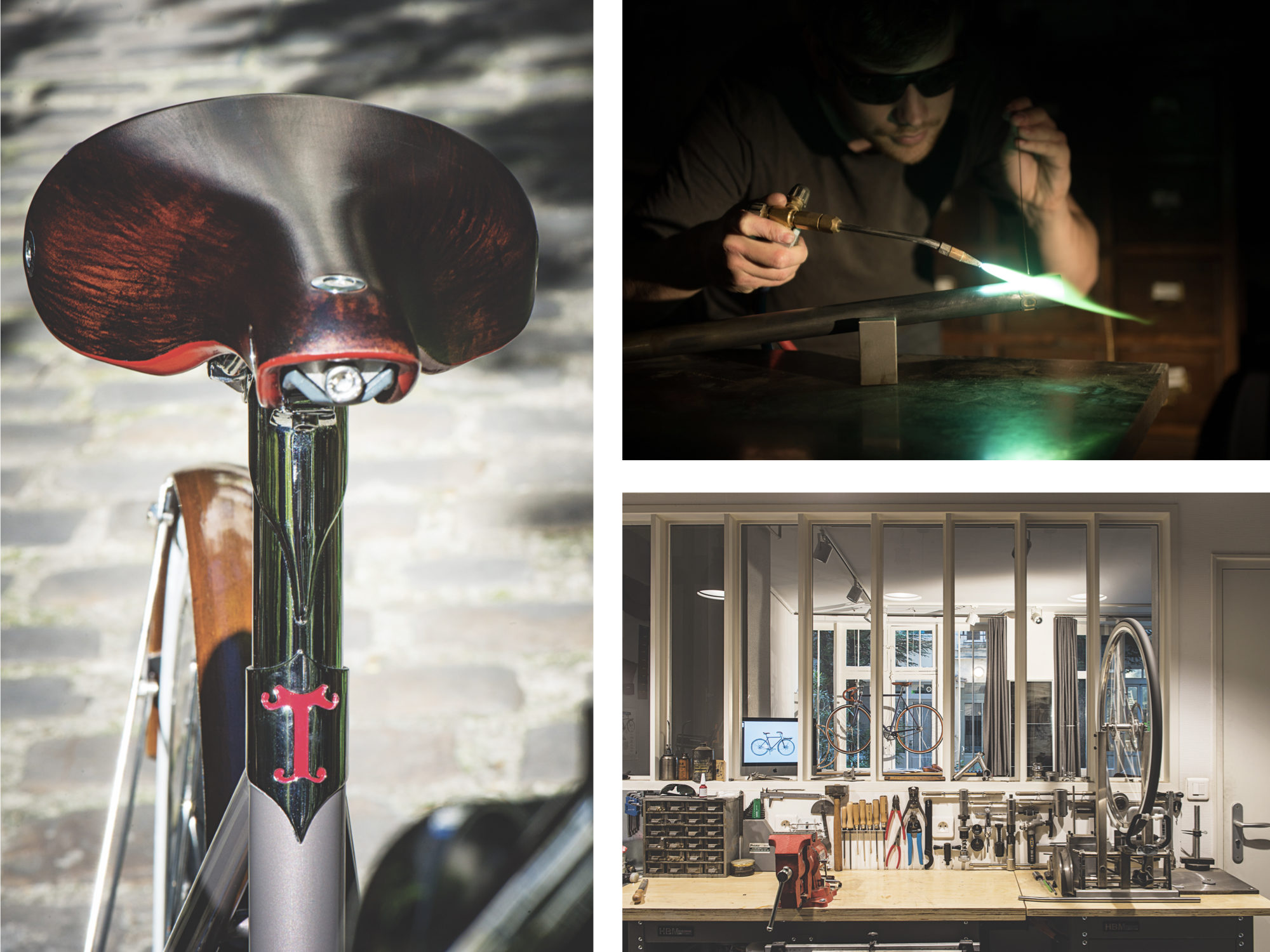The art of savoir faire is so ingrained in the French culture that it touches every part of the Gallic lifestyle, from high fashion to personal transport. For the latter, the name to know is Maison Tamboite, a century-old bike maker that has experienced a revival in recent years with its line of state-of-the-art, handcrafted bicycles. Established in 1912, by the artist and cycling enthusiast Léon Leynaud, Tamboite bikes became a symbol for French craftsmanship and elegance, beloved by notable 20th-century Parisians such as Josephine Baker, who rode her men’s racing bike to rehearsals, Maurice Chevalier, and, later, Edith Piaf.
The business now rests in the capable hands of Léon’s great-grandson, Frédéric Jastrzebski, who has set up a small showroom and workshop in a private, leafy courtyard through a porte cochere in the city’s 12th arrondissement, a neighborhood where craftsmen still tinker away in their ateliers. While the company’s insistence on desire for unparalleled elegance remains, Jastrzebski has steered the business into a new phase of innovation: made-to-measure for the 21st century.
Offering a mix of track bikes and Parisian porteurs (a leisure bike with a basket attached), each model in the showroom is entirely tailor-made to the individual, much like a bespoke suit. The ergonomic design process, overseen by master craftsman Hugo Canivenc, begins with taking each rider’s measurements—15 in all, including the height, inseam, shoulder, and even shoe size, which are used to create a computerized model. “At the end of the day, what we are doing is creating a model of the rider to ensure the bike is an extension of them,” Jastrzebski says. Each bike is then handcrafted by Canivenc and his team, with the greatest technical precision.
Maison Tamboite has several models on offer, all equally suave but conceived for different needs, from the Marcel, a sleek, single-speed racer with curved leather handlebars and beechwood rims, to the newest addition to the family, the Fauve, perfect for those aiming to venture beyond the Périphérique. The bike features a discreet 11-gear system and a fabric belt instead of a metal chain, “so when you are riding in the countryside or through a forest, there is absolutely no sound,” Jastrzebski says. The customization options are endless, from the chrome or enamel finishes to the vegetal-tanned leather saddles, right down to the color of the stitchings and hand-polished patinas. Urban bike models such as the Dalou and Henri, can be also fitted out as hybrid e-bikes, with light, self-charging engines.
As city spaces are being made over with bike lanes—in Paris, Socialist mayor Anne Hidalgo has greatly increased the number during her term—demand for these stylish two-wheelers will likely increase, though Jastrzebski sees an uptick in cycling worldwide as the natural order of things. The brand’s popularity in Asia has prompted retail partnerships in Tokyo and Seoul, and New York looks to be on the horizon. “People will ride more and more not just because it is imposed on them, but also because they have the right bike and they enjoy the pleasure of riding. That is what we work at.”


